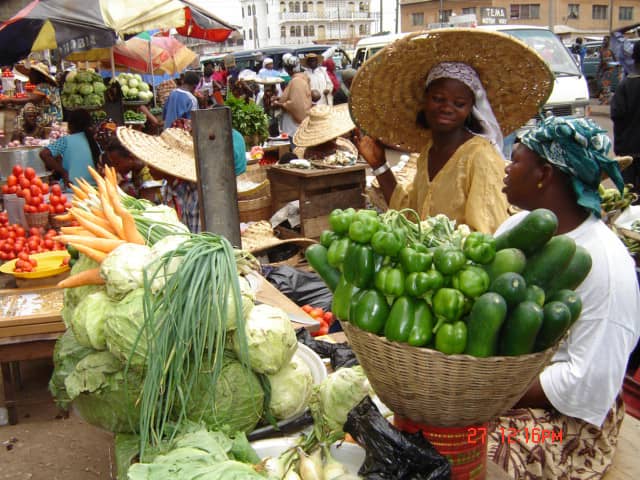The Executive Director of Agency for Health and Food Security (AHEFS), Mr. Kwaku Onwona-Hwesofour Asante has revealed that our region needs policy coherence and harmonization as tools to ensure functional food systems.
Mr. Asante mentioned that good food systems across the continent will empower farmers and foresters to move away from the exploitation of natural resources to the sustainable management of natural resources for long-term productivity.
“Most farmers have been regarded as producers of one species or another. It is important to note that such views disregard the role of the farmers as managers of the environment and species towards the achievement of genetic capacity for the species under cultivation”, he said.
Farmers are not just producers of agriculture commodities but rather managers of our agriculture value chain” he added.
The Forester made these observations during a presentation delivery via webinar on food systems under the theme: “Maintaining Functionalities by Building Resilience to Vulnerabilities”
The Africa Food Systems Dialogue was hosted by HIRED Consult under Mr. John Aggrey with support from Madam Esther Wanza, UNMGCY Regional Youth Focus Point for Africa, with the support of UNFSS.
Mr. John Aggrey indicated that the farmer’s activities also help to strengthen the economic, social, and environmental concerns associated with agriculture intensification.
“The need for policy coherence, harmonization and coordination are critical to ensure functional food systems” he indicated
The Executive Director mentioned that our continent is facing a looming food crisis, in addition to the health and economic crisis.
“Prior to the Covid-19 pandemic, Africa was already home to more than 70% of the world’s poorest people, and 55% of the world’s hungry.
The current state of African agri-food systems is the root of the disruptions to food security during the COVID19 pandemic, leaving farmers, traders, consumers, and the governments highly vulnerable to disruptions.
Weak food systems have left millions of Africans in hunger, affecting their productive capacity and the continent’s ability to industrialize, which further weakens food systems in a vicious downward spiral” he explained.
According to him, for a functional food system to be achieved in annuals and perennials crops, governments and duty-bearers must introduce a coherent policy framework that gives priority to land banking and commodity-specific value chains.
“We need to strengthen our farmer cooperatives for commodities of comparative and competitive advantage, strengthen domestic research institutions for varietal selection and climate-informed breeding, Support for and standardization of Good Agriculture Practices (GAPs) and lastly enforce Green-Certification Systems empowered by strong markets and price control mechanizes” he added.
Mr. Fai Cassian Ndi, Founder and Chief Executive Officer of Youth Development Organization YODO, Cameroon also indicated that lack of good road accessibility from farms to market further worsen the situation in most parts of Africa.
“Reducing poverty and ending hunger depends on good agriculture practices, good roads to farms, and access to all-year-round water supply for farmers in rural areas, where most of the worlds poor and undernourished live are very necessary.
Consumer awareness connection between diet and health is quickly catching up with the general public and the demand for information on functional foods is gradually scaling up.
Africa governments need to invest more in science, technology, food laws and research as a means of dealing with functional food systems in our region” he pointed out.
Story by: Reuben Quainoo.








